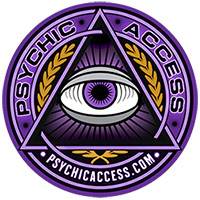At times, it is not always feasible to rescue those whom we cherish.
 A frequent theme in psychic readings revolves around the concerns clients have for loved ones – be it a child, partner, sibling, dear friend, or even a colleague.
A frequent theme in psychic readings revolves around the concerns clients have for loved ones – be it a child, partner, sibling, dear friend, or even a colleague.
The dilemma? Typically, the individual has chosen a course that appears perplexing, destructive, or potentially life-threatening: issues like substance use, harmful relationships, unwise career choices, or a way of life that seems illogical to observers.
If you find yourself agreeing about someone within your family or social circle, know that you aren’t alone. Everyone has faced such situations – witnessing a loved one make choices that, from our viewpoint, can only result in suffering, loss, or catastrophic outcomes.
Perhaps they’ve moved in with a controlling and abusive partner, left college to marry someone they barely know after relocating across the country, or are adamant about pouring their savings into a dubious Ponzi scheme. Maybe they keep repeating decisions and behaviors that seem evidently wrong for them.
It’s possible you sensed red flags from the outset, and your heart is heavy with a sense of spiritual déjà vu…because you can foresee the outcome. And yet…you feel helpless to intervene.
This is where spiritual wisdom can provide solace and insight. Many spiritual traditions suggest that it is often these painful, confusing, or seemingly misguided paths that foster the most significant soul development. Sometimes a person must endure hardship or delve into darkness to find their own light. While witnessing such experiences is tough, it may be an essential aspect of their soul’s journey.
Indeed, on a spiritual level, you might have consented to accompany them through that very scenario. Yes, even the most challenging moments. Even the heartache. Even the act of letting go.
No one saves us but ourselves. No one can and no one may. We ourselves must walk the path ~ Buddha
Soul contracts represent spiritual agreements formed prior to birth, where souls elect to lead and challenge each other in this lifetime, encouraging growth and evolution. These agreements encompass both joyful and painful experiences – even heartache and loss – as they act as catalysts for deeper self-awareness and expansion of the soul.
In this regard, even the most arduous relationships or scenarios hold significant meaning as they align with soul mission. Walking alongside someone through their turmoil, or letting go when it’s time, can feel devastating on a human level, yet it can signify a deeper act of love and commitment on a soul level. These instances remind us of the intricate, interconnected paths we share and the sacred role we hold in each other’s growth, even when faced with pain.
The Soul Path Of Adversity & Hardship
Many wisdom traditions affirm that a soul journey marked by adversity and hardship can lead to profound spiritual evolution, personal transformation, or soul progression. Here are several illustrations:
Indigenous traditions: Numerous indigenous cultures perceive challenges as essential rites of passage. For instance, vision quests involve seclusion and fasting in nature, compelling individuals to confront their fears and discover their life’s purpose. These experiences are deemed crucial for personal and spiritual growth.
Paganism: Many pagan traditions celebrate the cyclical nature of existence and the balance of light and darkness. The wheel of the year, observed in Wicca and other neo-pagan practices, features festivals like Samhain, which symbolizes the descent into winter and prompts contemplation of life’s mysteries. Pagan rituals often involve connecting with elemental forces and embracing the equilibrium between creation and destruction.
Buddhism: A central tenet of Buddhist philosophy is the concept of dukkha, or suffering, which stems from attachment and desire. The journey to enlightenment entails facing and transcending this suffering through mindfulness and meditation practices. The Buddha’s own journey—from a life of ease to confronting the harsh realities of illness, aging, and death—demonstrates the transformative potential of facing life’s hurdles.
Christianity: The crucifixion of Jesus serves as a powerful emblem of redemption through suffering. Christians uphold that enduring trials can facilitate spiritual growth and foster a closer connection with God. The Apostle Paul articulated, “Suffering produces endurance, endurance produces character, and character produces hope,” highlighting the transformative power of hardships.
Islam: Within Islam, tests and challenges are viewed as opportunities for faith and a chance to exhibit patience and trust in Allah’s wisdom. The Qur’an underscores resilience and gratitude; believers are taught to attain tranquility even in adversity by surrendering to the divine will.
Sufi mysticism: Sufi poets like Rumi frequently delve into themes of shadow and light, asserting that spiritual enlightenment often necessitates descending into the depths of one’s soul. Rumi’s renowned saying, “The wound is the place where the light enters you,” encapsulates the notion that pain can serve as a conduit to profound understanding and connection.
Occultism: Traditions such as alchemy and ceremonial magic often pursue transformation through experimentation. Alchemy, for instance, employs the metaphor of transmuting lead into gold to symbolize the purification and illumination of the soul. Rituals in occult practices frequently involve confronting fears or darker aspects of the self to achieve spiritual advancement.
Gnosticism: This ancient philosophical system emphasizes attaining gnosis – direct spiritual insight – to transcend the material realm, often regarded as flawed or illusory. Gnostics contend that the soul’s journey is about liberating itself from the confines of the physical world, guided by inner understanding and divine light. The notion of pleroma (realm of light) contrasts with the material realm, accentuating the duality between spiritual freedom and terrestrial struggles.
These teachings collectively remind us that traversing through flames or darkness, while intimidating, often results in increased clarity, resilience, and connection.
By not standing firm and by not exercising tough love, we often cause the figurative ‘death’ of others and sometimes ourselves, our goals, our destiny ~ Deborah Smith Pegues
Spiritual Love Is Also Tough Love
We might not always be eager to hear it. It’s instinctive to wish to shield our loved ones. Yet the reality is that spiritual love isn’t solely about rescuing others. It’s about offering support. It’s about creating space. It’s about having faith in their soul’s journey, even in times of uncertainty.
<pAuthentic love, particularly on a soul level, isn’t always gentle, nurturing, or convenient – it can at times be profoundly challenging. Spiritual love may entail holding someone accountable, helping them navigate their tribulations, or allowing them to confront difficulties to foster growth. It could also involve establishing boundaries, speaking hard truths, or permitting someone to experience setbacks or sorrow rather than protecting them from it, all driven by a deeper dedication to their development and well-being.
Soul relationships are not purely about unity; they are about transformation, even if the journey is sometimes quite painful or demanding, and we must occasionally give precedence to long-term soul growth over immediate comfort.
It’s tempting to intervene and try to resolve issues or “jolt them into awareness,” especially if you are a parent or close friend of someone who seems trapped in a self-destructive cycle. Perhaps they are battling addiction. Maybe they continually choose the same detrimental relationships. Perhaps they disregard sound counsel and immerse themselves in chaos. It’s exasperating and heart-wrenching!
Yet often, our truest act of love is to step back and allow their journey to unfold. For as much as we may believe we know what’s best for them, the soul inherently understands what it needs to learn. And astonishingly, you can garner equally valuable insights by refraining from intervening. Sometimes, your lesson is about letting go, trusting, and relinquishing control. It’s not simple. But it’s vital. And it can be profoundly restorative.
Letting go doesn’t equate to ceasing to love them. It signifies loving them unconditionally. It means articulating, “I am here for you, regardless of your choices. I may not endorse your karmic decisions, but I will not forsake you.” That is the type of love that transforms.
When we don’t allow others to endure the repercussions of their actions, we impair them emotionally. We deprive them of the opportunity to learn from their missteps ~ Randi G Fine
Self-Sacrifice vs. Sacred Boundaries
Now let’s change the perspective a bit. Have you ever had a parent or loved one who attempted to live through you? Perhaps they made you feel accountable for their happiness. Maybe they’ve expressed sentiments like, “I live for you and your triumph.” This may initially appear sweet, but as time passes, it can feel like an immense weight—a burden that stifles your own growth and joy.
This phenomenon is often observed in possessive parents who grapple with allowing their children to mature into independent adults. Their intentions may be commendable, but their controlling tendencies foster dependence and resentment. Even worse, they might expect you to cater to their needs, advice, and lifestyle, disregarding your own boundaries.
Here’s the spiritual truth: You are not responsible for another’s emotional fulfillment. Sure, love encourages us to care. However, it does not demand self-sacrifice. If we continuously forsake our well-being to maintain harmony or evade guilt, we are not embodying compassion—we are sidestepping growth. Both our own and theirs.
At times, our spiritual lesson is to establish “no” to those who overstep. Their lesson may be to learn to accept “no” without feeling rejected. Boundaries are sacred. They safeguard not only you but also the integrity of your relationships.
Of course, it is never easy to impose boundaries—especially with someone we cherish. It can evoke guilt, fear, or even past traumas. But standing in your truth is a manifestation of self-love. When you assert “no” from a place of clarity and compassion, you’re not slamming a door—you’re merely drawing a line that signals: This is where I begin. This is where I respect myself.
One of the most spiritually responsible actions we can take in such scenarios is to ask ourselves, “What is the highest good for everyone involved here?” This inquiry shifts our perspective from control and fear to compassion and wisdom. It serves as a reminder of our interconnectedness and that every soul is on its unique sacred journey, even if we don’t fully comprehend it.
Therefore, if you are experiencing a tough phase with a loved one pursuing a path you don’t grasp, take a deep breath and remind yourself to trust the process. Maintain the space with patience, acceptance, and love. Establish boundaries with compassion. And always, always act in what you deem is the highest good for all. For when you make choices aligned with love, truth, and spiritual integrity, you can never go astray.
|
Shani is a licensed practitioner in Reiki, aromatherapy, reflexology, body spin, and animal telepathy, having received psychic development training at the Arthur Findlay College of Psychic Research in England. A published author, her writings and forecasts have been featured in numerous reputable magazines and on psychic websites, in addition to reading for many high-profile individuals, including leaders in Africa. Her empathy allows people to easily connect with her. Each month, she participates in a psychic circle, and the insights she receives from Spirit consistently astonish everyone present. Although she was born in London, Shani has journeyed across the globe and has explored the art of African Mysticism, enriching her unique approach for those seeking her exceptional gifts. From her myriad travels abroad, she has recognized a common desire among clients to connect with the essence of their being. Get a reading with Shani at PsychicAccess.com. |
Life is filled with unpredictability and uncertainties. Despite our utmost efforts, there are occasions when we cannot protect the individuals we hold dear. Whether due to factors outside our control or the limits of our own abilities, it can be a sorrowful revelation to make peace with.
One of the most challenging facets of this awareness is the accompanying sense of helplessness. We may yearn for nothing more than to shield our loved ones from danger, yet sometimes the forces at play are simply insurmountable for us. This realization can be difficult to accept as we struggle with the concept that we cannot always dictate the results of the circumstances we find ourselves in.
Remember that while we may not be able to save those we care for, we can still extend them our love and support. Being present for someone in their time of distress, even if we cannot alter the outcome, can be incredibly impactful. Our empathy and companionship offer comfort and solace, even amidst adversity.
Additionally, it is vital to acknowledge our own limitations and boundaries. We cannot fulfill everyone’s needs, and it’s perfectly acceptable to accept when we’ve reached our personal limits. Seeking assistance from professionals or other support networks can be invaluable during crises, helping us maneuver through complex situations where we may feel limited.
Ultimately, reconciling the notion that we cannot always rescue our loved ones is a humbling journey. It serves as a reminder of our humanity and life’s fragility, teaching us to treasure the moments shared with those we cherish. While this truth may be hard to accept, it encourages us to value the time spent with our loved ones and to make the most of every moment together. Continue reading

















